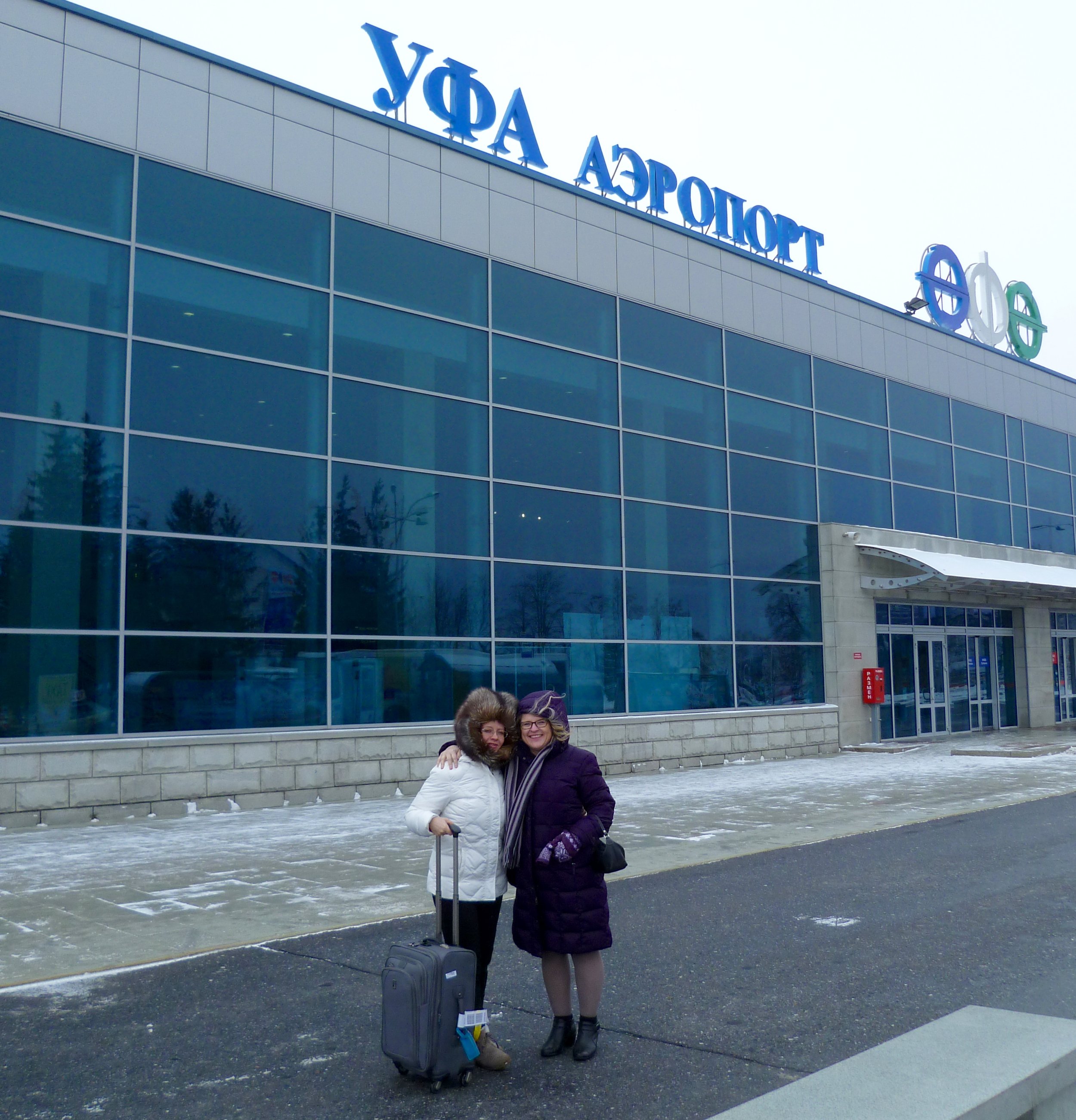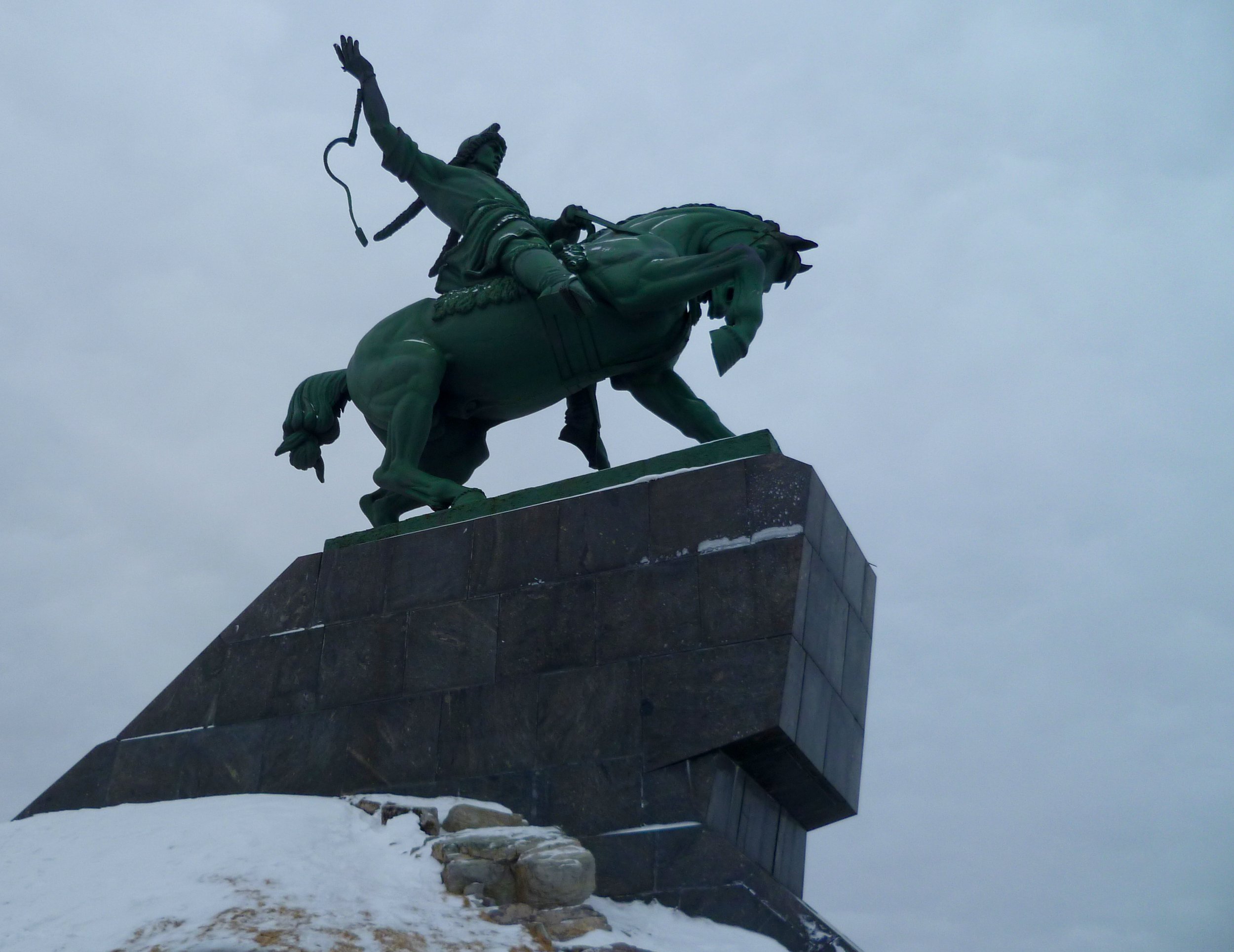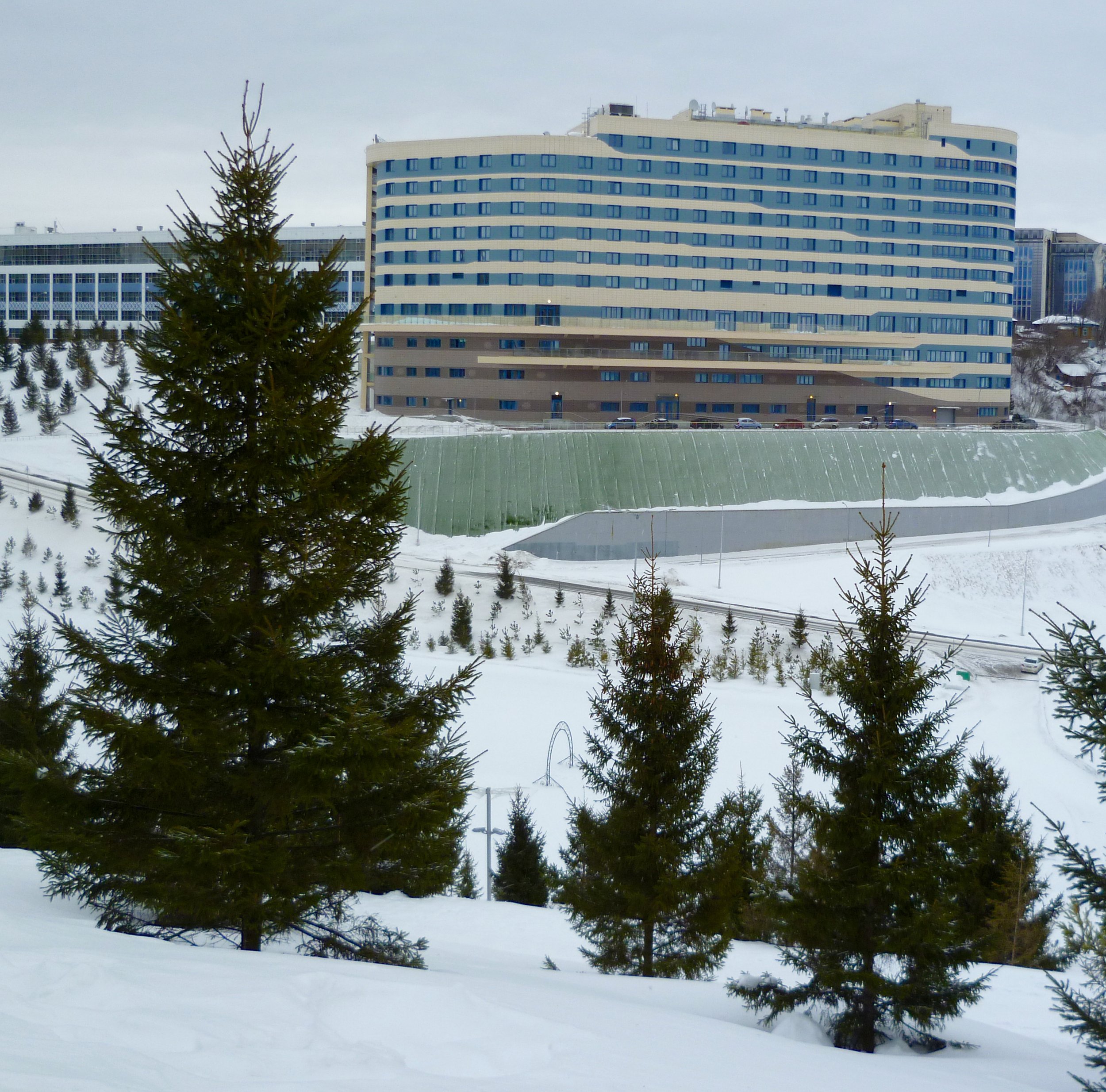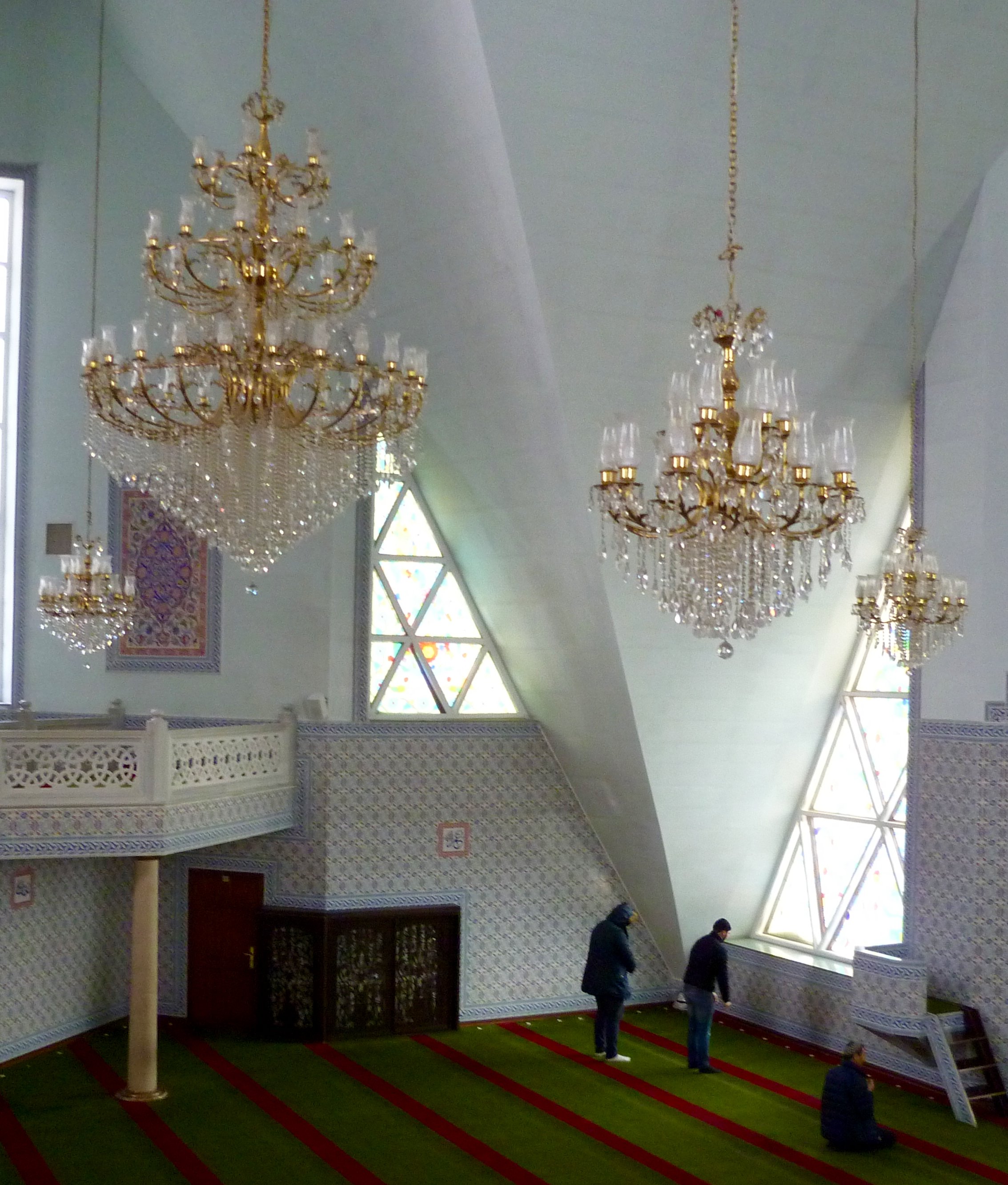Ufa, Old and New
Back in October I met a wonderful ethnographer named Lyalya and she invited me to visit her in Ufa, a city about 850 miles to the east of Moscow in Bashkortostan. With the rouble-dollar exchange rate working so heavily in my favor, I took her up on her kind offer and hopped on a two-hour Aeroflot flight. You can see that the name of the airport is written in both Russian (Уфа) and Bashkir (Өфө), the regional language. We are very small and our hats are very big.
Уфа Ufa
Lyalya had convinced her good friend Vadim to drive us around for a couple of hours so I could take a good look at the city. I can’t stress enough how generous this was. It happened to be February 23, Defenders of the Fatherland Day, a holiday that most people spend celebrating the men in their family. Instead, Vadim battled the snowy streets of Ufa for me. Vadim is some sort of entrepreneur and he and Lyalya are close enough friends that the first thing she said to him was, “You look old!” He later joked that they need to widen Ufa’s streets just so she can make it through.
As soon as we got in the car, Lyalya whipped out a bag of homemade meat pastries (belyashi) and a bottle of lemon soda to welcome me in the traditional Russian “bread and salt” way. We headed straight for the riverbank to get an overview of the city.
Ufa is at the intersection of two rivers, the Belaya and the Ufa. At the top of the hill is a giant monument to Salavat Yulayev, a Bashkir national hero. In the mid-1700s (during Catherine the Great’s reign) there was a HUGE revolt against her, one so big it almost caused the downfall of the Russian Empire. The revolt united an unlikely coalition of people all opposed to the monarchy: serfs, Cossacks and ethnic minorities, such as Tatars and Bashkirs. The Bashkirs were particularly active in this rebellion, fighting off the Russian colonialism that was forcing them to change their traditionally nomadic way of life. Salavat Yulayev was a particularly brave leader who fought in more than 20 battles for Bashkir freedom and was eventually lashed with whips and imprisoned for life. Here he is on his stallion:
It is, in fact, a stallion and not a mare. Apparently, there is a tradition to paint the testicles (known in Russian as “eggs”) of the stallion on the Thursday before Easter.
Ufa has a fantastic contrast of old buildings (see the little wooden houses on the side of the river, above?) and new buildings. Like this one, the Congress Hall, also on the riverbank, where leaders of the BRICS countries met last year:
Because of the BRICS conference, Ufa has a ton of new, foreign hotels. I mean, it’s even got a Hampton Inn!
While a slight majority of Ufa residents are ethnic Russians, nearly half the residents are Tatars or Bashkirs. Oddly, there are more Tatars than Bashkirs here in Bashkortostan. Bashkirs and Tatars are similar in that they are both Muslim, Turkic peoples, but they speak different languages. Ufa has one of the coolest mosques I’ve ever seen:
It’s called Lala Tulpan, meaning “Tulip in Bloom.” Someone’s made a LEGO version of it! Lyalya is sneaky with the camera, so we got a shot of the interior, even though it is not allowed:
Later, Lyalya used her super-stealth spy skills to nab a photo inside Ufa’s main church:
There is something about entering a Russian church in the winter. It’s so cold outside, and dark. But then you step into the church and there’s a golden glow from all the candles and the icons. The silence feels very peaceful and the soft light is incredibly welcoming. I can see how people find comfort here.
After our whistle-stop tour, Lyalya fed us a feast. After all, it was a holiday and I was a guest. She’s a beautiful woman and she laid out a gorgeous spread:
During dinner, she and her father told me about the history of their family. Her father is Tatar and didn’t speak Russian until he began school. After Lyalya was born they moved to Kazakhstan, where they lived until about 1999. The Kazakh years were good years, but Russian citizenship called them home. Since then, Lyalya has taught at several institutions and now is on the faculty of Ufa’s Oil University. She also moonlights at a Montessori school– more on that later.
Lyalya’s brother joined us later in the dinner– he lives with his wife and two young daughters– but I didn’t get a photo because I was already drunk on Abkhaz cognac. Her brother is a veteran from the Second Chechen War, but thankfully returned home unwounded. After the delicious and filling food and all that cognac, I begged Lyalya to let me take a nap, which she gracefully allowed. I think I’m turning into a sleepy old woman!










